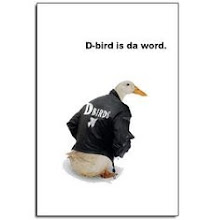One thing I've learned over my years of teaching is the importance of my own attitude - the fact that I am happy to be in the classroom/library with the kids, taking an interest in what they need, helping them to succeed - all that counts. It amuses the dickens out of me when kids say, "Why are you so cheerful today?" and I reply that it's because I'm in this classroom/library with them. They then look baffled. Sure, I need to know my stuff, have the lesson organised and so on, but the attitude counts as much as my knowledge base, experience and preparation. I can't speak for primary age students, but certainly I hear over and over from high school kids that they get treated with suspicion/hostility by adults far more often than is warranted; and I have had many adults say, 'high school? I couldn't spend all day with teenagers, I don't know how you do it' over and over. Mostly, the kids are great - and I've been doing this for over two decades. They grow up, too, so even the most awkward ones to deal with eventually travel onwards in their lives, carrying, one hopes, useful things from their time at school.
Greg Whitby in his blog Blueyonder discusses this topic here.
Surveying his own colleagues, here is the list he came up with:
■passion / fun
■engagement
■compassion
■patience
■knowledge
■personality
■relentless
■relationships
■learner
■collegial
He was partly inspired to discuss it by Amanda Ripley's recent article in The Atlantic Monthly (find it here - click on the printer format link on the page to read it on a single page). This article includes four videos from the Teach for America program showing four teachers each with a successful teaching style - the Motivator, the Manager, the Connector, the Tour Guide.
Find those videos and more on the Teach for America website here.
On the left of the site, in the greyed area, are six important points highlighting ideas about effective teaching.
One thing Teach for America has been doing is research into what makes teaching effective; what is replicable, rather than alchemy. As Ripley said in the Atlantic Monthly:
Parents have always worried about where to send their children to school; but the school, statistically speaking, does not matter as much as which adult stands in front of their children. Teacher quality tends to vary more within schools—even supposedly good schools—than among schools.
But we have never identified excellent teachers in any reliable, objective way. Instead, we tend to ascribe their gifts to some mystical quality that we can recognize and revere—but not replicate. The great teacher serves as a hero but never, ironically, as a lesson.
Race to the Top is the US funding program to improve teaching and learning - there is a speech by Education Secretary Arne Duncan about great teachers here.
All this is informing/influencing education policy in Australia (eg. the MySchools website).
Author John Marsden has his own insights into what makes a good school, in a Sydney Morning Herald article here.
There is a Teach for Australia program. Find it here.
Cheers
Ruth
























No comments:
Post a Comment